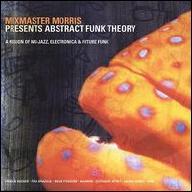Mixmaster Morris
from Brighton, England
January 1, 1965 (age 61)
Biography
Mixmaster Morris (real name: Morris Gould) began his career as a DJ around 1982, spinning indie and punk music while attending college in London. As he continued, he expanded to experimental jazz and fusion artists like Sun Ra and Captain Beefheart. He also started to host one-man electronic shows, using loops and tapes to make hypnotic, ambient mixes. He began to work in London's pirate-radio scene, where he first gained the nickname Mixmaster Morris. After college, Morris worked as a computer systems analyst, but kept DJing when he had the chance. In 1985, he started working under the name Rhythm Method, only two years later he changed it to the Irresistible Force when he began working with Des de Moor. They began a techno event called Madhouse in 1988, an annual show that was one of the first to celebrate electronic music. A tour with Meat Beat Manifesto led to the recording of his first single, 1989's I Want To, and a split from de Moor that saw him retaining the name Irresistible Force. He was the supporting DJ for the Shamen's tour of Europe, taking breaks to play chill-out rooms at underground parties. In 1990, he took a regular gig at the chill-out room in Heaven, a club started by the Orb's Alex Patterson. He also played an infamous show with Aphex Twin around this time that lasted 16 hours. In 1992, he finally released a full album under the Irresistible Force name, Flying High. A flurry of work followed, including singles, remixes, and eventually a second album, 1994's Global Chillage. The album was the first he made strictly on his computer, a trend he would keep up from that point. Irresistible Force was becoming one of the premier names in ambient music, giving Morris the chance to tour the world with his unique sound. Several tours, including notable appearances with rock artists Seefeel and Spiritualized, would follow as he began to get the credit he deserved as one of the first ambient techno artists. Problems with his label prompted a break from recording, but by the fall of 1998 he returned with It's Tomorrow Already on the Ninja Tune label. Besides his monthly article in Mixmag, he only performed live after that album. ~ Bradley Torreano, Rovi
Top Tracks
Albums
Videos
Close













